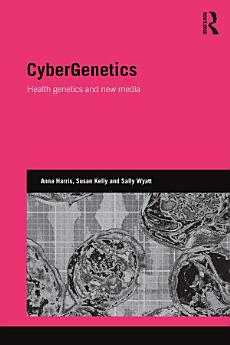CyberGenetics: Health genetics and new media
Par šo e-grāmatu
With a focus on genetic testing for disease, the book is about the new social arrangements which emerge when a traditionally clinical practice (genetic testing) is taken into new spaces (the internet). It examines the intersections of new genetics and new media by drawing from three different fields: internet studies; the sociology of health; and science and technology studies.
While there has been a surge of research activity concerning DTC genetic testing, particularly in sociology, ethics and law, this is the first scholarly monograph on the topic, and the first book which brings together the social study of genetics and the social study of digital technologies. This book thus not only offers a new overview of this field, but also offers a unique contribution by attending to the digital, and by drawing upon empirical examples from our own research of DTC genetic testing websites (using online methods) and in-depth interviews in the United Kingdom with people using healthcare services.
Par autoru
Anna Harris completed a medical degree at the University of Tasmania, and a Masters and PhD in Medical Anthropology at the University of Melbourne. She has been a post-doctoral researcher at the Universities of Maastricht and Exeter. She has published in clinical and social science journals, and her own blog.
Susan Kelly is Associate Professor in Sociology, University of Exeter and Senior Research Fellow in Egenis (Exeter Centre for the Study of the Life Sciences). She earned a PhD in Sociology from the University of California, San Francisco, followed by a post-doctoral position in the Stanford Center for Biomedical Ethics.
Sally Wyatt is Programme Leader of the e-Humanities Group of the Royal Netherlands Academy of Arts and Sciences, and Professor of Digital Cultures in Development at Maastricht University. She is the founding co-editor (with Andrew Webster) of the Health, Technology & Society series published by Palgrave Macmillan.






